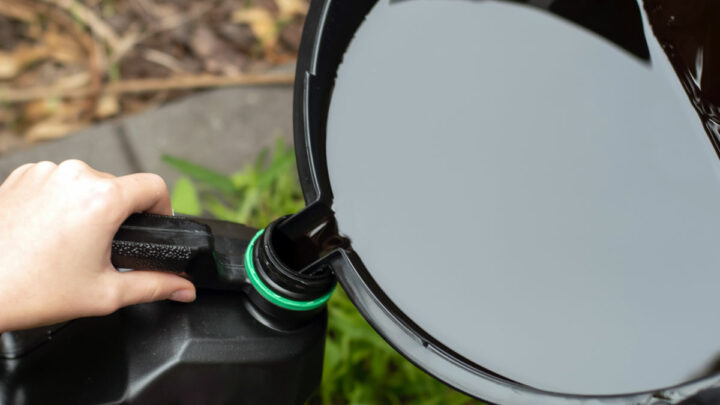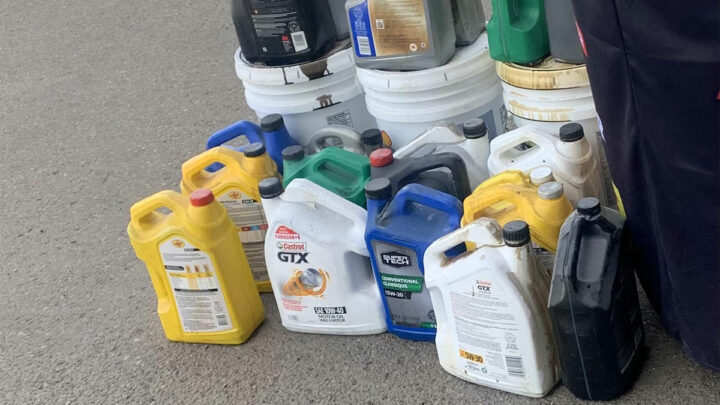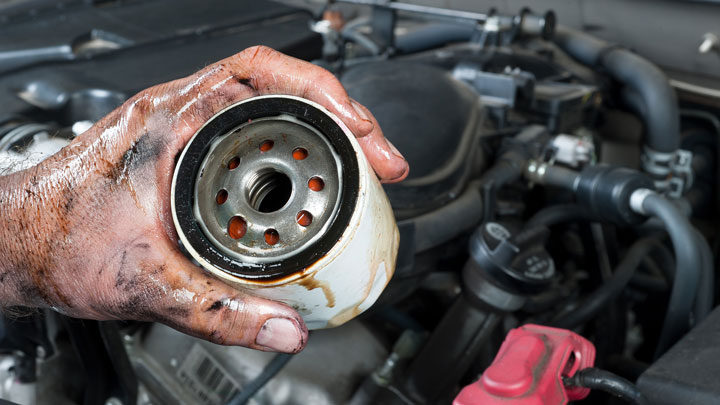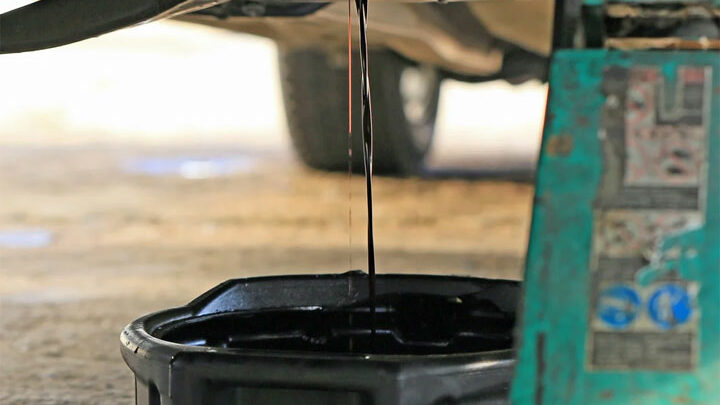Do Auto Parts Stores Really Take Your Used Oil For Free?
Changing your own oil can save you time and money and empower you with a hands-on approach to your car’s care. But what do you do with those jugs of blackened oil once it’s drained from your vehicle?
Do auto parts stores really take used oil off your hands for proper disposal or recycling? What about oil filters?
Let’s look at the policies of the most popular auto parts stores when it comes to used oil disposal and how the process actually works.

Read Also: 10 Cheapest Places to Buy Motor Oil
Auto Parts Store Oil Disposal Policies
The following is a store-by-store rundown of which popular parts retailers accept used motor oil for disposal. However, one should also still call ahead to their intended disposal site, to ensure that the individual store has enough capacity to accept your disposal.
Does AutoZone Take Used Oil?

AutoZone does accept used oil for disposal, along with oil filters. Other accepted items for disposal include batteries, gear oil, and transmission fluid.
Does NAPA Take Used Oil?

Like many other parts retailers, NAPA does accept used motor oil, along with used oil filters. Of course, this service is subject to the availability of space within each location’s bulk storage bin.
Does Advanced Auto Take Used Oil?

Advanced Auto Parts does indeed accept used motor oil, as well as oil filters, gear oil, transmission oil, and batteries. Advanced does specify that the availability of this is subject to local regulations.
Does O’Reilly’s Take Used Oil?

O’Reilly’s is yet another parts vendor that accepts used motor oil among other recyclable materials. The most notable of these materials include oil filters, transmission fluid, gear oil, and batteries.
Does Canadian Tire Take Used Oil?

Canadian Tire is among the most adamant supporters of proper automotive waste disposal in the retail sector. The company disposes of waste oil, oil filters, antifreeze, gear oil, and aerosol cans for free.
See Also: How Long Does Synthetic Oil Last?
How the Process Works
The process of dropping off used motor oil for disposal purposes is quite simple. The first step involves determining where you will be attempting to drop your used motor oil off.
While almost every auto parts store now accepts waste oil, other potential options include large corporate retailers, such as Costco and Home Depot, as well as quick lubes, such as Jiffy Lube.
In most cases, upon dropping off your used motor oil, you will be asked to sign a logbook or spreadsheet that acknowledges your disposal. The contents of this entry typically include your name, signature, description of the substance discarded, and approximate total volume of discarded fluids.

Policies and Restrictions
There are several things to keep in mind when disposing of waste oil at retail locations. The first of which is that most stores do not accept mixed fluids. Therefore, it is important to keep various fluids, such as oil and antifreeze separated in specific containers. Failure to do so will often result in the rejection of your disposal.
It is also important to keep in mind that most retail store locations only accept a limited volume of oil per drop-off. This means you should make it a habit to drop off the used motor oil after each oil change, rather than let it gather up in your garage until a later date.
Will Auto Parts Stores Take Used Oil Filters As Well?

In most cases, used oil filters can be disposed of at any of the same auto parts stores that dispose of used motor oil. Recycling these two items goes hand-in-hand, and these two services are generally offered as a package deal by the bulk of vendors in many areas.
Nonetheless, it is also a good idea to call ahead when attempting to dispose of used oil filters, as you would used oil. This stems from the fact that oil filters, even when crushed, often take up extensive space within a location’s disposal bins.
Because of that, it’s fairly common to attempt to dispose of used oil filters at a particular location, only to be told that they can accept no more units until those already on site are picked up.
Related: Oil Filter Won’t Budge? (Do This)
Where Else Can I Dispose of My Used Oil?
Aside from auto parts stores, there are several alternative places that one can go to dispose of their used motor oil. One option is to try speaking to someone at a locally owned garage or shop.
While not all shop owners will be keen on the idea of disposing of other’s motor oil for them, many will be. Most shop owners would much rather dispose of used motor oil, than see it poured into a ditch or storm drain.
Alternatively, many landfills and recycling firms also accept used motor oil, and they are equipped to dispose of such substances in an approved manner. While many of these locations limit the amount of oil disposed of on any one given instance, some do not.

Likewise, a number of recycling entities require the completion of a basic form for disposal, though alternative sites employ no such practices.
Finally, check with the residential trash and recycling service you use. They may accept used oil on trash or recycling day or have a free annual hazardous waste disposal day at a specific location.
See Also: How to Dispose of Old Gas
Are Places That Sell Motor Oil Obligated to Take Used Oil?
Currently, there is no federal law obligating retail oil vendors to accept used motor oil for disposal, though state, county, or municipality regulations might vary.
Generally speaking, vendors provide such services on a free-will basis to all consumers, including those that have not purchased motor oil at their retail location.
In most cases, one will be required to record the quantity and contents of their drop-off in a site-specific log book. These records are aimed to assist the retail location itself in maintaining EPA compliance, while also releasing the store from a certain degree of liability, should the contents of a specific drop-off be mixed.
- 5 Symptoms of an EVAP Leak (and Repair Cost) - Apr 27, 2024
- P0480 Code (Symptoms, Causes, and How to Fix) - Apr 19, 2024
- Car Temperature Gauge Stopped Working? (Here’s Why) - Apr 15, 2024
